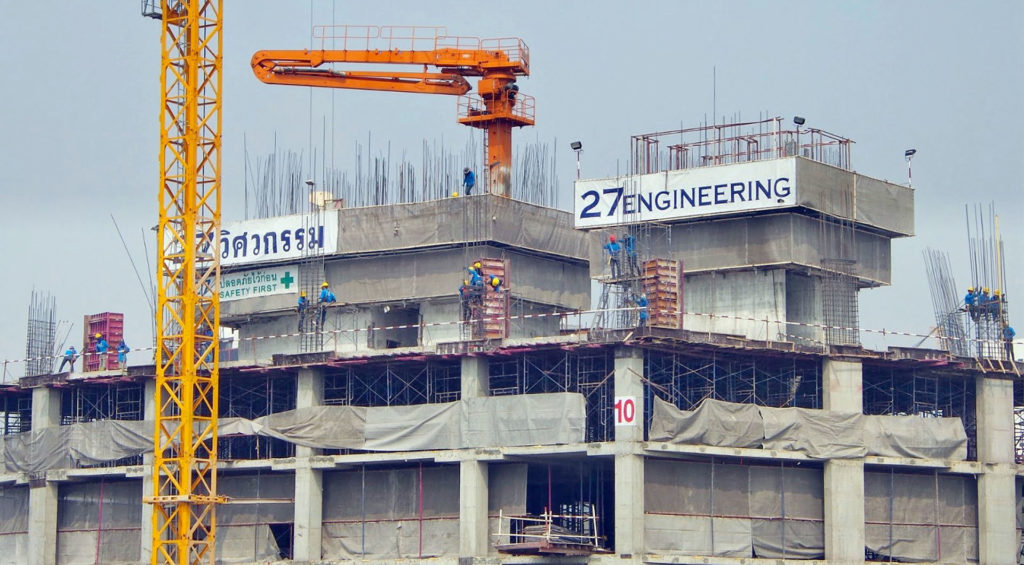07 Jan Thailand property developers anxious about year ahead
Property developers should be more cautious about financial liquidity and new supply launches because residential presales and transfers are unlikely to be as robust as previously expected this year.
Atip Bijanonda, president of the Housing Business Association, said that if the global economy does not improve, there will be an adverse impact on the Thai economy. US policies will slow investment in China, which will affect supplier countries like Thailand.
“Consequences of the US-China trade war may cause some layoffs and slow new investment,” Mr Atip said. “If the global economy affects the Thai economy, purchasing power will diminish.”
As the property sector usually relies on infrastructure projects, it will depend on whether the next government will continue key policies on megaprojects like the Eastern Economic Corridor (EEC), double-track railway lines, the high-speed rail to link major three airports and the new mass transit lines in Bangkok.
Lending curbs and rising interest rates will dampen the purchasing power of new homebuyers. They will receive a lower credit line, while banks’ mortgage loan rejection rates will be higher.
Existing mortgage borrowers will have a lower budget for further spending as interest rates rise. For every 25-percentage-point increase in interest rate, a cut in borrower’s loan principal will reduce by 2%. Repayments will take longer periods.
Mr Atip said the land and buildings tax that takes effect in early 2020 will boost the amount of second homes to compete with new residential supply. This will have an impact on new supply launch.
“Developers should be more careful of their liquidity, as company expenses will be fixed but earnings may miss their targets,” he said. “Sales and transfers will not be as good as expected. They may need capital reserves for healthier cash flow.”
Mr Atip said land prices this year will continue rising, particularly in locations near mass transit lines. This will affect condo prices by 5% for every 10% rise in land prices. For a single house and townhouse, the price will increase by 3% this year.
“Some condo developers avoided higher land prices by moving to develop projects in locations where land prices are cheaper but the sales rate was not good,” he said. “Condos should be close to mass transit lines.”
Issara Boonyoung, the association’s honorary president, said land prices will remain a key factor driving development cost, particularly in locations near infrastructure projects.
In the three EEC provinces, land price increases this year will cool after soaring in the past few years. Megaprojects will help boost new supply in suburbs, vicinities and the three EEC provinces.
Mr Issara said cement prices this year will rise by 5%, the same rate of increase as last year. Together with land and development costs, residential prices in 2019 will rise by 3-5%.
“As costs will continue rising and make housing prices higher, developers should be more careful of new supply launches amid a forecast slowdown in home purchasing power,” Mr Issara said. “Developers should adjust products and sales strategy to match demand, which will be impacted by the new lending curbs that require buyers to make a higher down payment.”
A source in the property sector said there are concerns about condo transfers in 2019 among some Japanese partners that have joint ventures with local developers in condo projects, as many such projects are scheduled for completion this year.
“Though foreign partners are from different firms, they often meet after work and share their condo sales rate with each other,” the source said. “Some are concerned over unit transfers at their joint venture projects this year. If the transfer is poor, they may reconsider new investment.”

